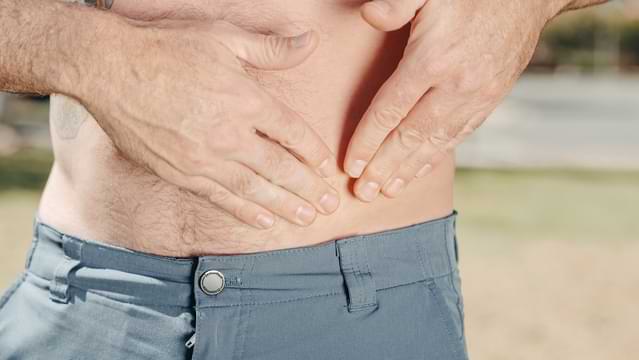Do you always have a certain ‘gut feeling’ when making an important decision? Have you felt ‘nauseous’ while giving that interview? Did you experience ‘butterflies’ in your stomach talking to your crush? All these expressions are used for a reason. The connection of your gut with your brain is expressional and is scientific and links stress and anxiety to stomach health.
Emotions have an impact on the gastrointestinal tract. Anxiety, anger, sadness, happiness, depression, and stress are typical emotions. All of these emotions have the potential to cause stomach problems.
The stomach and intestines are directly affected by the brain. The mere thought of eating, for instance, can cause the stomach’s juices to be released before the food enters the gastrointestinal tract. This relationship is reciprocal. A distressed intestine can convey messages to the brain, just as a disturbed brain can do the same. As a result, stomach or intestinal discomfort might be the result or cause of anxiety, stress, or depression. It results from an intimate connection between the brain and the gut.
The Brain-Gut Connection:
The gut-brain link is a mechanism through which the gut and brain communicate. The vagus nerve in the brainstem is the starting point for this communication network, which runs through the major organs and back, making it a two-way link. A complete network of nerves is buried in your stomach wall that interacts with your brain all the time.
- The “enteric nervous system,” which runs from the lower part of your esophagus to your rectum, is sometimes referred to as the “second brain” because this extensive network of nerves sends signals back and forth to the brain.
- A huge nerve called the vagus nerve connects these two brains.
- This enteric nervous system is linked to the brain and spinal cord.
Symptoms of an unhealthy gut:
An unhealthy gut can affect your physical, emotional, and mental wellbeing. Anxiety is probably one of the most obvious signs that something is wrong with your gut, but many others.
Before you observe your anxiety levels rising, you may begin to experience a few of the physical signs of a gut impairment:
- Bloating
- Persistent Constipation or diarrhea
- Exhaustion
- Headaches
- Skin and hair issues
- Joint soreness
- Inflammation
Improving your gut health:
How about comprehending the famous phrase “you are what you eat” and controlling your gut health? Alongside reducing or even trying to eliminate your stress and anxiety, you’ll immediately notice and feel improvements in your overall health.
- Increase intake of probiotics
- Avoid processed foods with high sugar content
- Hormonal balance through a healthy diet
- Stay active and exercise regularly
Symptoms of anxiety:
The frequent, little anxious emotions may not cause concern because they can occur to anyone. However, if your anxiety begins to interfere with your daily life and negatively impact your digestive system, it’s vital to take action to lessen or eliminate it. Anxiety might feel like:
- Feeling restless, nervous, or tense
- Experiencing a sense of terror or impending disaster
- Faster breathing
- Sweating
- Trembling
- Weakness or exhaustion
- Inability to focus on anything except the cause of the anxiety
- Insomnia
Reducing anxiety:
Some of the techniques which will help you reduce anxiety and stress and ultimately improve your gut health are suggested below:
- Cognitive Behavioral Therapy (CBT)
- Progressive Muscle Relaxation (PMR)
- Meditation
- Limiting or avoiding alcohol and drugs
Gut health and anxiety are firmly connected to the extent that both health significantly impacts one another. Therefore, it is beneficial since you can heal one by healing the other.
Eventually, you want to improve the health of both your mind and body. And that is precisely what Fantastic Life focuses on. Our naturopaths and nutritionists are there to guide you to practice some of the benefits mentioned above and health measures that can enhance your gut health and lower your anxiety. Begin these new habits now with nutritious eating, exercising regularly, as well as a focus on your mental health, and you’ll feel better physically and mentally.

